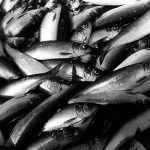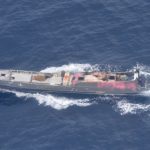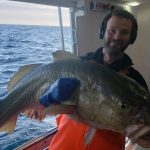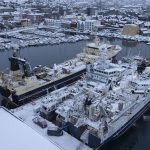In 2008, Libby Logerwell and fellow co-workers from the National Marine Fisheries Service (NMFS), surveyed fish populations off western Beaufort for the first time in three decades to acquire data assisting in the evaluation of potential impacts of oil and gas development. The research also led to US regulators’ 2009 ban on commercial fishing in federal Arctic waters following findings of commercial fish species typically harvested in the Bering and North Pacific.
Environmental destruction in the Arctic contributes heavily in ice receding due to climate change, and also from catastrophic oil spills from future oil production or exploratory drilling. Climate change is also resulting in commercially valuable fish and shellfish species move northward.
When they evaluated the potential environmental effects of oil and gas exploration in the Beaufort, federal scientists acknowledged, they were forced to depend on limited and old data about fish. Environmental groups looking to stop or slow the pace of oil and gas development in offshore waters have strongly admonished the research conducted with a dearth of data,








